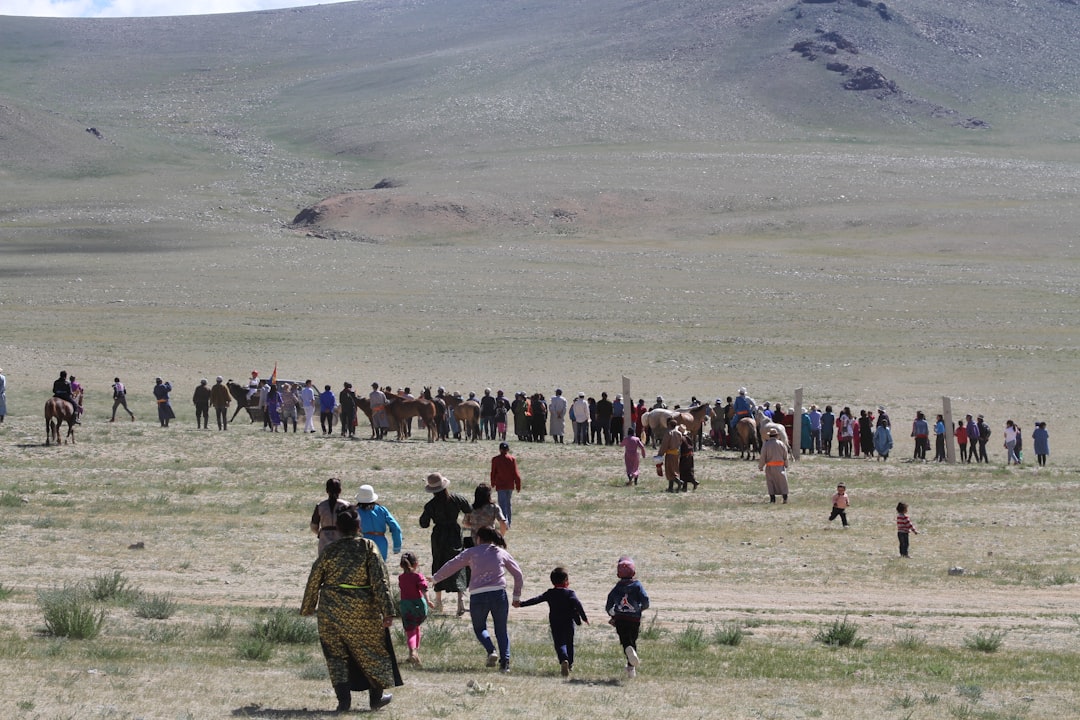The Shocking Attack Unfolds (Image Credits: Unsplash)
Washington DC – Tension hung heavy in the air near the bustling Farragut West metro station as news broke of a shocking attack that left two National Guard members wounded.
The Shocking Attack Unfolds
Early reports painted a grim picture of the violence that erupted in the heart of the capital. Two members of the National Guard fell victim to gunfire, turning a routine day into chaos. Law enforcement quickly locked down the area, with sirens echoing through the streets as investigators pieced together the events.
The incident, described by officials as deliberate, sent ripples of concern across the city. Eyewitnesses spoke of sudden panic amid the morning rush, highlighting how quickly safety can shatter in unexpected ways.
This wasn’t just another urban disturbance; it carried weighty implications for national security and immigration debates that have simmered for years.
Trump’s Fiery Call for Action
President Donald Trump wasted no time labeling the shooting an “act of terror” in a pointed speech shortly after the news hit. He urged his administration to “re-examine every single alien who has entered our country from Afghanistan” during Joe Biden’s tenure. His words cut through the political noise, demanding a thorough review of those who arrived post-2021 withdrawal.
Trump’s stance reflects a return to tough-on-immigration rhetoric, emphasizing the need to restore what he sees as lapsed safeguards. He tied the attack directly to policies from the previous administration, framing it as a wake-up call for stricter measures.
Supporters praised the urgency, while critics worried about the broad brush it painted over vulnerable refugees. Still, the president’s message landed with force, shifting focus back to border vetting.
Unveiling the Suspect’s Background
The Department of Homeland Security identified the suspect as Rahmanullah Lakanwal, a 29-year-old Afghan national. He had entered the U.S. under a Biden-era humanitarian program set up after the chaotic 2021 troop pullout from Afghanistan. Earlier this year, immigration authorities granted him asylum, allowing him to stay.
Further details emerged when CIA Director John Ratcliffe revealed Lakanwal’s past ties to the agency. He had worked alongside U.S. Special Forces in Afghanistan, a connection that adds layers of complexity to the case. Questions now swirl about how such affiliations factored into his entry and approval process.
This revelation underscores the tangled web of alliances formed during two decades of conflict, where today’s ally could become tomorrow’s enigma.
Immediate Policy Shifts Hit Immigration
In direct response to the shooting, U.S. Citizenship and Immigration Services announced a halt to processing immigration requests for Afghan nationals. This pause affects those seeking asylum, green cards, and other benefits extended under previous policies.
The move signals a broader clampdown, with the Trump administration vowing to retroactively vet refugees already resettled in the U.S. Immigration advocates decry it as targeting the most vulnerable, potentially bullying those who fled Taliban rule.
Yet proponents argue it’s essential for public safety, pointing to the incident as proof that gaps in screening could have dire consequences. The policy freeze comes at a sensitive time, just as resettlement efforts were gaining traction.
Wider Reactions and Debates
The shooting ignited a firestorm of opinions across political lines. Trump’s allies rallied behind his call, viewing it as a necessary correction to what they call lax Biden-era decisions. Meanwhile, human rights groups expressed alarm, fearing mass deportations or unwarranted scrutiny for thousands of Afghans now calling America home.
On social media and in news outlets, discussions heated up about the 2021 withdrawal’s long shadow. Some pointed to Trump’s initial deal with the Taliban as the root, while others blamed execution under Biden. The blame game only amplified calls for transparency in vetting.
- Afghans entered via special programs post-withdrawal, totaling tens of thousands.
- Many underwent initial screenings, but Trump’s push targets deeper reviews.
- The CIA link raises questions on inter-agency coordination for high-risk cases.
- Advocates urge balanced approaches to avoid alienating allies from past wars.
- Public sentiment leans toward caution, with polls showing rising immigration concerns.
Looking Ahead: Security vs. Compassion
As investigations continue, the balance between bolstering security and honoring humanitarian commitments hangs in the balance. Trump’s administration faces pressure to deliver on its re-examination promise without unraveling lives built on fragile hopes. The DC tragedy serves as a stark reminder of how past policies intersect with present dangers.
Experts suggest enhanced background checks could bridge the divide, incorporating advanced tech and international intel. Yet implementation will test political will amid ongoing global instability.
In the end, this moment could redefine U.S. approach to Afghan resettlement for years to come.
Key Takeaways
- Trump’s response ties the shooting to Biden’s immigration policies, calling for full re-vetting.
- The suspect’s CIA ties complicate the narrative around Afghan entrants.
- USCIS pause halts new applications, impacting thousands seeking safety.
The fallout from this shooting challenges America to confront its commitments abroad and at home. What steps should come next to protect both security and compassion? Share your thoughts in the comments.







